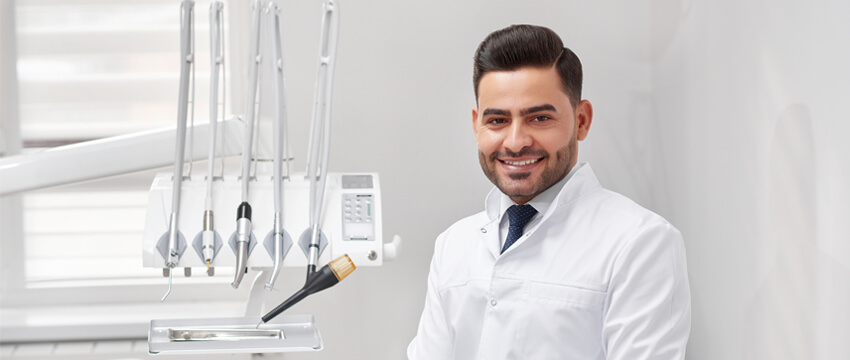1. A compressor increases your dental treatment’s efficiency.
The right air compressor also increases safety for each patient that comes through your office. Many dentists prefer oil-free over oil-lubricated air compressors because they reduce the possibility of lubricant contamination in compressed air flow. Removing the case of air contamination is the most significant victory and makes the most sense because it protects your patients, staff, and dentists.
2. A dental air compressor makes your work easier and faster.
The most frequent application of dental compressors is during the filling and maintenance of teeth. Having a high-quality dental compressor can help the dentist perform these treatments effectively and accurately. The air-gas mixture is fed through a tiny oral cannula, while the air goes through a hose to the compressor, which generates heat energy and compressed air. The increased air pressure creates a vacuum, removing the extra moisture in the oral cavity.
3. Dental compressors keep your patients safe by providing sterile air to breathe.
Having cleaner air when using a compressor is essential to keep your patients and other equipment safe. When working in a dentist’s office, there is a danger of infection from bacteria, microorganisms, and pathogens. You could be creating a breeding ground for these risks if the compressor for your practice produces poor air quality (too little pressure.)
4. Dental air compressors are an essential part of dental offices.
Air compressors are the heart of dental surgery. This machine compresses, cleans, dries and stores air, powers handpieces, and performs certain functions in dental treatment centres. Please think twice when settling for an affordable yet low-quality air compressor. Cattani compressors come in several sizes and models to accommodate the procedures you are offering, as well as the number of dental chairs you have in your practice.
5. A good air compressor prevents cross-contamination between patients.
Dental air is usually supplied via an oil-free compressor, which should be fitted with an air-intake filter and a post-compression filtration and dryer system. This ensures that the air is clean and dry, minimising the risk of contamination of the system by microorganisms and improving the efficiency of dental instruments.
 6. An air compressor provides power for other dental tools and equipment, like suction pumps and saliva ejectors.
6. An air compressor provides power for other dental tools and equipment, like suction pumps and saliva ejectors.
Saliva ejectors are devices that use a high-pressure jet of water to remove saliva from the mouth. Suction pumps use a vacuum to create negative pressure, which helps remove fluid and debris from the mouth. Both of these devices require power to function; that’s why dental offices need compressors.
7. A dental compressor is a wise investment that will save you time and money in the long run for your dental practice.
Reliable dental equipment has a reputation to be precise and expensive, with dentists spending thousands of dollars a year on supplies and machines. Be sure to choose a reputable vendor that offers an extensive warranty. A product such as an oil-less compressor is a long-term investment and quality should not be sacrificed. Using low-quality air with your hand tools will cause them to need to be replaced more frequently.
If you are a dental professional, you would know how important a dental air compressor is to your practice. It is an essential part of using your dental handpiece to perform your dental procedures. It compresses, cleans, and stores the air the dental handpiece uses, so the tandem of a compressor and handpiece should be flawlessly made.
It is understandable, then, that dental offices require compressors; the performance of your dental handpiece is directly related to the efficiency of your chosen dental air compressor. So, if you’re shopping for an air compressor, contact Cattani Compressors. As suppliers of Cattani compressors, we can answer your questions and help you find suitable air compressors for your practice. Call us on (02) 8880 9257.
References
https://www.compressedairsystems.com/blog/dental-air-compressors-choosing-right-one/
https://www.linkedin.com/pulse/what-dental-compressor-importance-compressors-practices-akanksha-jain
https://www.news-medical.net/Clinical-and-Diagnostics/Dental-Compressors



